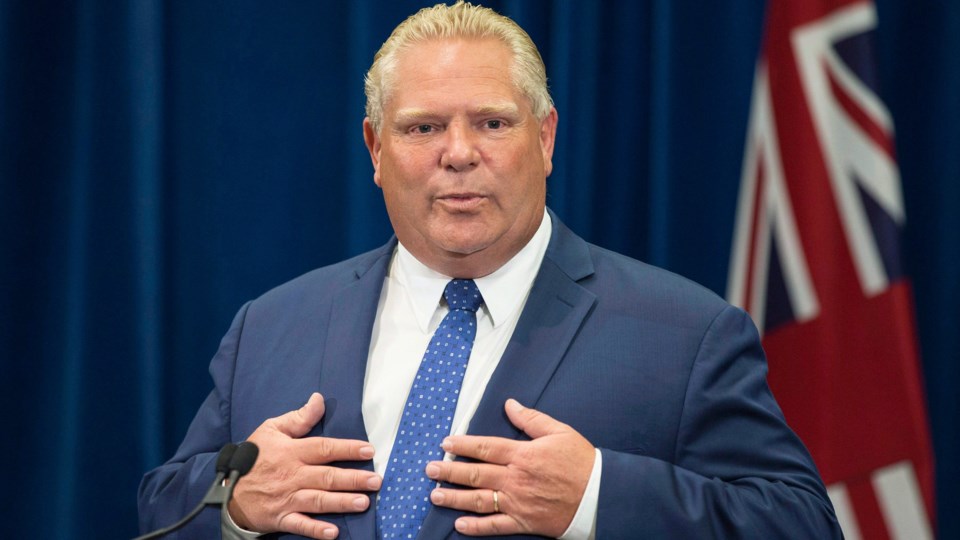Once upon a time, there was a small town at the base of a set of cliffs. People visited the cliffs to enjoy the view, but the cliffs were dangerous and from time to time people would fall from them.
This became such a big problem that the town decided to build a trauma centre to treat the victims. But they were all so busy looking after the victims, and it was so expensive, they never had enough time or money to build a fence at the top of the cliffs to stop people from falling.
Sadly, this parable reflects the state of thinking about public health in governments across Canada. The most recent and egregious example is Ontario, where the Doug Ford government has announced in the same breath a $200-million annual cut to public-health budgets and a $2.7-billion annual increase in hospital spending. In effect, they are demolishing the fence while growing the trauma centre.
But Ford is not alone in his short-sighted and narrow view of public health. He is just the latest in a string of political leaders who have taken an axe to public health in the past few years.
In 2015, for example, Quebec instituted a one-third cut to regional public-health services, resulting in a $24-million reduction in budget and a loss of public-health expertise, while in 2017, New Brunswick dismembered the office of the provincial health officer, having previously fired its PHO without cause.
This Canada-wide phenomenon is a triumph of short-term thinking — there are votes to be had in increasing health-care spending — over long-term investment in prevention, creating long-term pain for short-term gain. Investing in public health — and in a range of upstream social, environmental and economic improvements — would reduce not only costs but, more importantly, premature deaths and much unnecessary pain and suffering.
So why don’t governments care about or choose to invest in public health? There are several factors at play, one of which might be that public health does not generate headlines, whereas dramatic life-saving interventions do.
When public health is effective, nothing happens. Nobody writes headlines about the hundreds of cancers that did not happen, only about the latest high-tech drug or intervention that reduced the death rate from cancer.
Then there is the fact that public health is not simply about biomedical interventions at the individual level, but about the environmental, social and economic conditions that shape people’s health. This leads some politicians, especially those more wedded to an individualistic and neo-liberal ideology, to criticize public health for not “staying in its lane” — that lane often being seen as concerned only with infectious-disease control.
But the reality is that while infectious diseases remain a public concern, the major killers are chronic diseases, many of which are caused at least to some extent by large industries, and can be worsened by public policies.
That might be another factor in the political disdain for public health, because in doing its job of preventing disease, injury and premature deaths, public health finds itself opposing some of the country’s major corporations — the tobacco, alcohol, fast-food, fossil-fuel and other industries that are also important political-party funders and supporters.
Public health doesn’t just oppose industries that make money by harming health, it also critiques public policies that harm health, which doubtless irritates governments, too. Yet we know that poverty, hunger, homelessness and a range of other social conditions worsen health and public policy can either improve or worsen the health of the public, especially the most vulnerable and disadvantaged.
More recently, given the growing recognition of the potentially massive health impacts of climate change, public health has been active in opposing the expansion of the fossil-fuel industry and has intervened in support of the federal carbon tax in provincial lawsuits opposing it.
But governments need to understand both the role of public health in society and the public good that can flow from an effective and well-funded public-health sector. Funding the expansion of health care while cutting public health is a triumph of ideology over common sense and the public interest.
Dr. Trevor Hancock is a retired professor and senior scholar at the University of Victoria’s School of Public Health and Social Policy.



